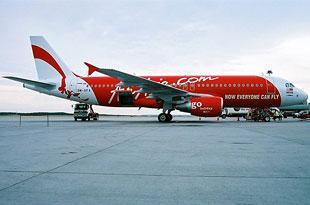The Delhi High Court (HC) has refused to entertain a plea by local industry body which challenged the grant of flying licence to Malaysian budget carrier AirAsia Bhd's joint venture with Tata Group and another local business partner Arun Bhatia in India.
The plea was filed by the Federation of Indian Airlines (FIA) against the decision of the Directorate General of Civil Aviation (DGCA) on Wednesday to grant an operational permit to AirAsia.
On May 7, AirAsia got the licence from aviation regulator for domestic airlines in India and said the company is looking to start flying within a couple of months. It added that it will include Delhi to its route map. The budget carrier had previously said it would not fly to Delhi and Mumbai due to high airport taxes and charges.
While the firm has retained its decision of not flying to Mumbai, it would add Delhi as it becomes important part of any national carrier. Moreover, unlike Mumbai, which has other significant airports close by including Pune, no other nearby city can serve Delhi as a satellite airport.
In February last year, AirAsia had formed a joint venture with Tata Group and another local business partner Arun Bhatia to operate a domestic low-cost airline. AirAsia owns 49 per cent in the three-party JV with Tatas owning 30 per cent and remaining 21 per cent is with Telstra Tradeplace (owned by Arun Bhatia).
It had originally planned to start operations by October-November 2013 but this got delayed due to pending clearances.
AirAsia, which already flies to India in the international circuit, will compete with other budget carriers such as IndiGo, SpiceJet and GoAir besides new players such as Air Pegasus.
The government had opened up the sector to foreign strategic investors, allowing foreign direct investment (FDI) up to 49 per cent in 2012.
Early this year the aviation regulator had dismissed objections raised by other incumbents, including IndiGo, which argued that FDI in Indian airline sector is permitted into existing carriers and not for setting up new JVs.
(Edited by Joby Puthuparampil Johnson)






